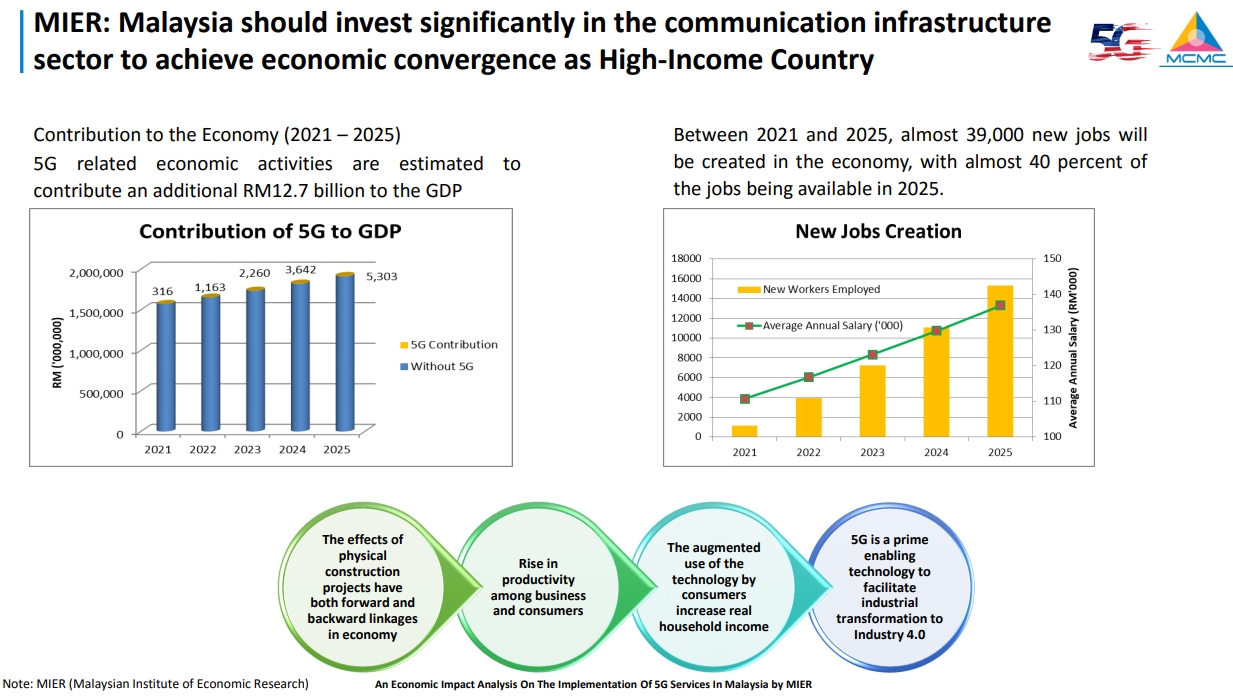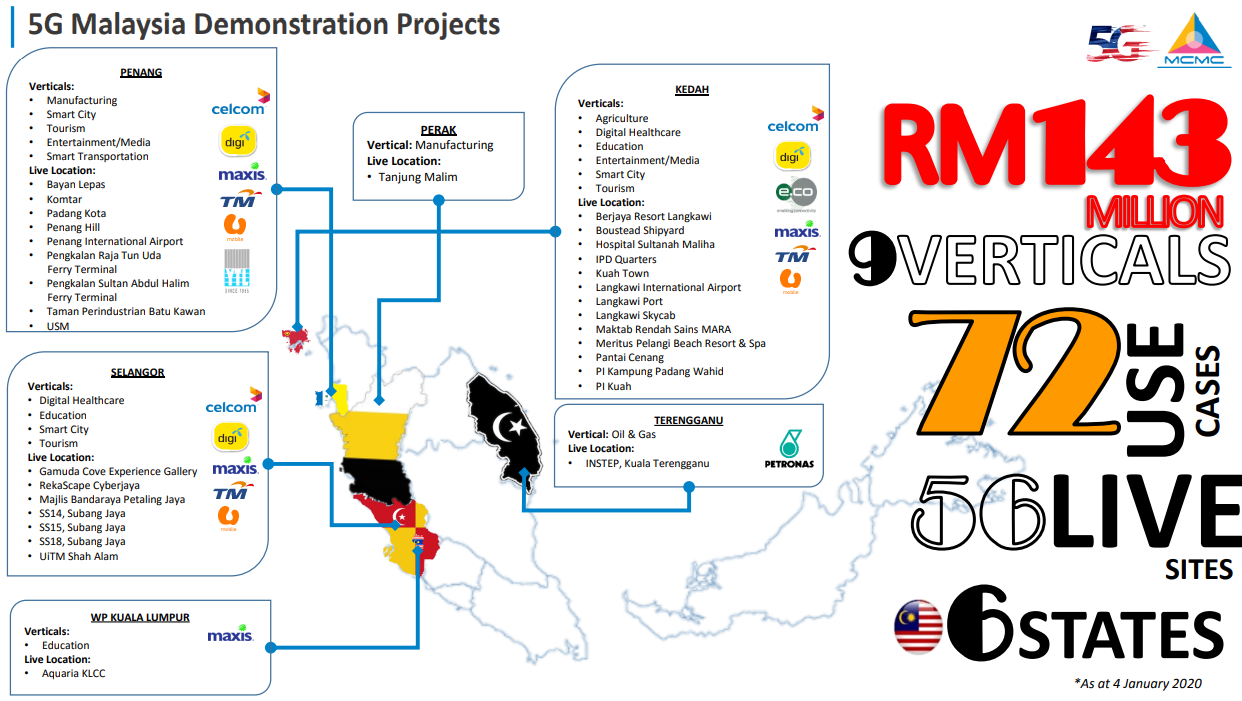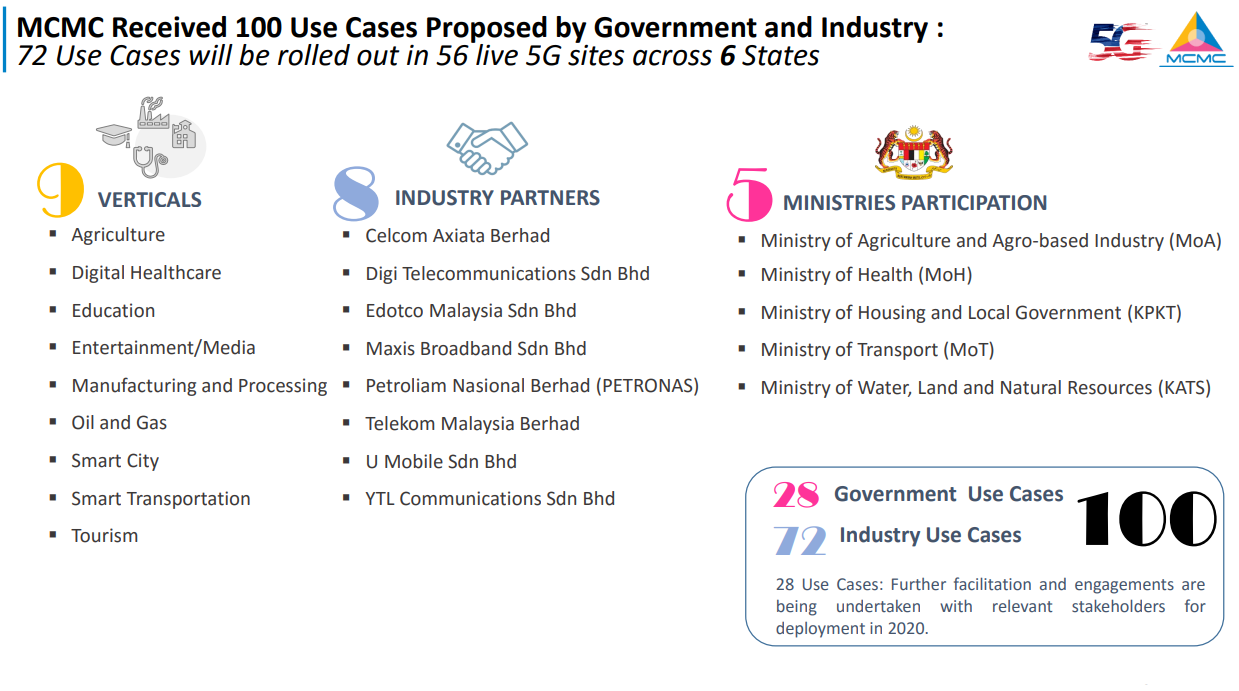Malaysia’s 5G spectrum bands were announced last week and commercialisation is expected to begin in Q3 2020. Although the current state of 4G in Malaysia still has a lot of room for improvement, the Malaysian Communications and Multimedia Commission (MCMC) emphasised that 5G is not just about enhanced speeds and connectivity, but it’s also an economic driver that can improve the quality of life, businesses including SMEs, and the government.
According to the Malaysian Institute of Economic Research (MIER), 5G implementation will provide a significant impact on the nation’s economy. It is estimated that it would contribute up to RM12.7 billion to the GDP between 2021 and 2025. On top of that, it has the potential to create more than 39,000 new jobs with higher income, and almost 40% of these jobs are expected to be available in 2025.
In the recent Budget 2020 announcement, the government has allocated RM50 million in grant for 5G ecosystem development. This will be used to stimulate adoption of 5G use cases across various industries including automotive, manufacturing, public safety, education, agriculture, tourism, entertainment and media.
At the moment, Malaysia is currently running its 5G demonstration projects in six states namely Penang, Selangor, WP Kuala Lumpur, Perak, Kedah and Terengganu. MCMC has identified a total of 100 5G use cases that has an initial total investment of RM143 million.
This will consist of 72 industry use cases and 28 Government use cases. The demonstration project aims to nurture the development of 5G use cases and to facilitate collaboration between Ministries, key industry partners as well as SMEs and startups.
MCMC has also shared that there are currently only 8.2% of households in Malaysia that are connected to fixed broadband. This will be addressed by the National Fiberisation and Connectivity Plan (NFCP) which aims to improve broadband quality and coverage with an average speed of 30Mbps at 98% of populated areas by 2023. The commission has quoted a World Bank study which indicated that a 10% increase in fixed broadband penetration can increase a developing nation’s GDP growth by 1.38%.
The MCMC is confident that Malaysia is on track to roll out 5G in the third quarter of 2020 and it will elevate Malaysia as one of the pioneers in the region to implement 5G. Malaysian Prime Minister Tun Mahathir is scheduled to officiate the 5G Malaysia Demonstration Projects in Langkawi on 19th January 2020.











